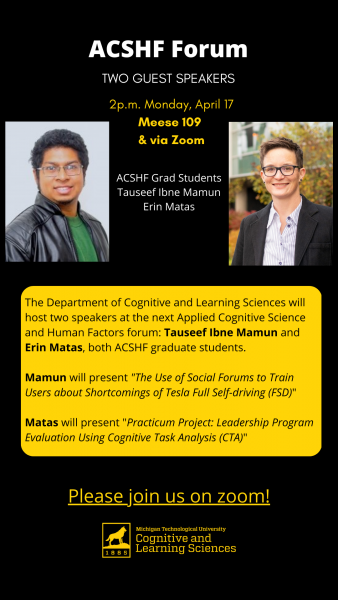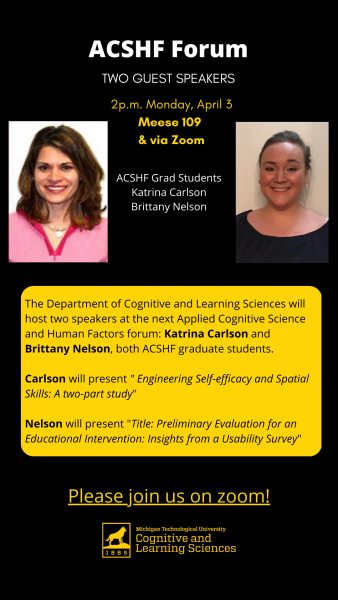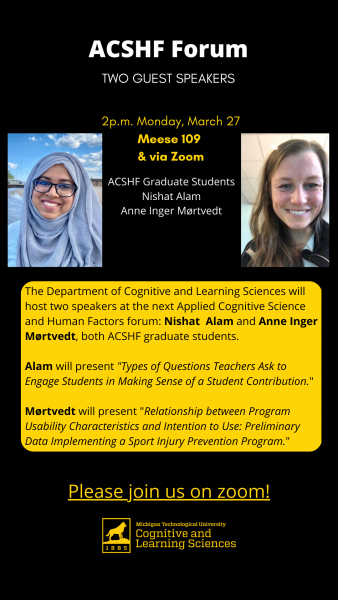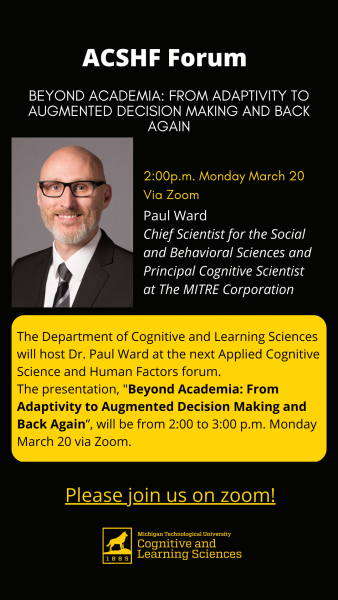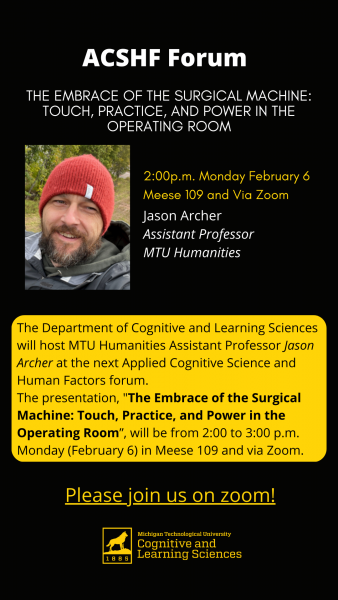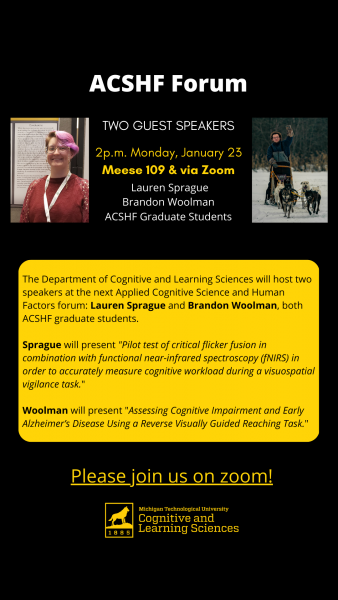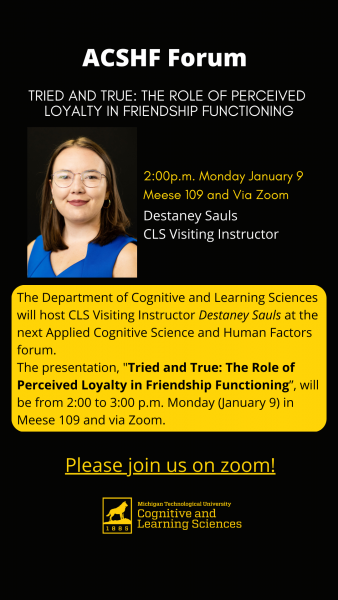The Department of Cognitive and Learning Sciences will host two speakers at the next Applied Cognitive Science and Human Factors forum: Tauseef Ibne Mamun and Erin Matas, both ACSHF graduate students. Their presentations will be from 2:00 to 3:00 p.m. Monday (April 17) in Meese 109 and via Zoom.
Mamun will present “The Use of Social Forums to Train Users about Shortcomings of Tesla Full Self-driving (FSD)”
Abstract: In the past decade, consumer adoption of commercial semi-autonomous vehicles has increased, and along with it user concerns about shortcomings of these systems, especially regarding safety. Users often turn to social media forums to discuss these shortcomings, find workarounds, and confirm their experience is common. We suggest that these forums may provide some of the best training for users to understand the limitations of AI, as they are not controlled by the vendor who has a vested interest in hiding the limitations of their systems. In two laboratory experiments, we examined how information from Tesla FSD forums impact participants’ ability to detect and predict hazardous driving situations in simulated scenarios. Drivers who received the training were better at anticipating and recognizing dangerous driving conditions, suggesting that exposure to user-generated explanations of the shortcomings of the system may in fact improve safety and acceptance of the systems.
Matas will present “Practicum Project: Leadership Program Evaluation Using Cognitive Task Analysis (CTA)”
Abstract: The Association of Research Libraries (ARL) Leadership Fellows Program is designed to prepare emerging library leaders for senior-level positions in research libraries and other types of organizations. Erin Matas is a 2021-2022 cohort Fellow. For her ACSHF practicum project, Erin used Cognitive Task Analysis (CTA) methods to identify areas where improvement is needed for the leadership program’s training and development. The Leadership Fellows program has a year-long curriculum that targets different learning topics each month. Using human factors methods, Erin analyzed challenges in the Fellows’ current jobs and compared them with the topics covered in the program to determine if there are any training gaps. Erin interviewed 7 Fellows using CTA to identify cognitively complex aspects of their work and systematically analyzed the data. She developed task diagrams from each interview, identified themes, and presents results in a concept map. To round out the project, Erin will deliver the concept map and an executive summary report of her findings and recommendations regarding training to the Director of the ARL Leadership Fellows Program. The Program Director will include the recommendations in the final assessment of the program for the year to the ARL executive leadership team. Did CTA techniques identify overlooked training topics, pinpoint where more support is needed, and/or reinforce the strength of the current curriculum? Find out on April 17th at the ACSHF Forum!
